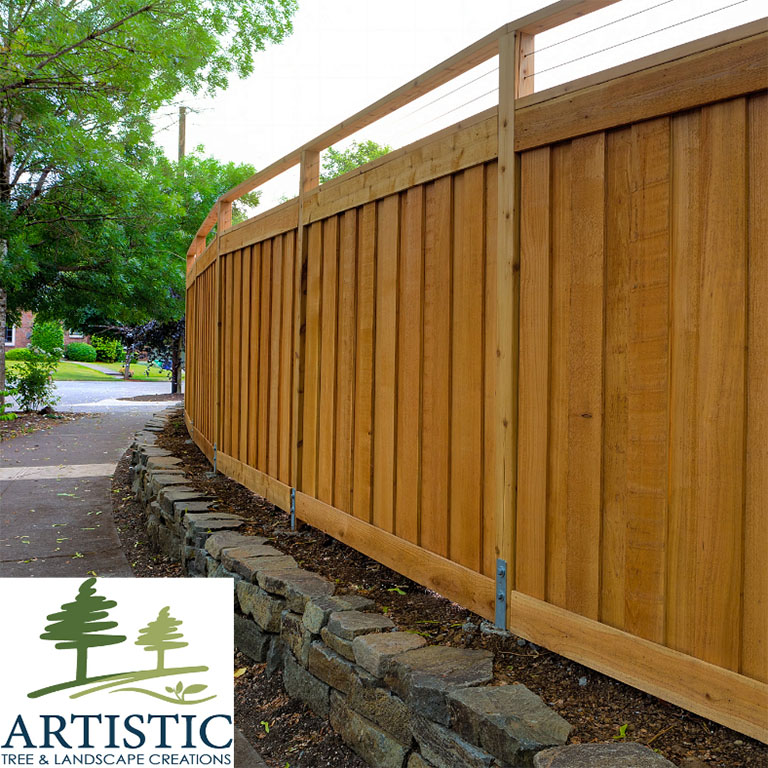All Categories
Featured

Picking the right fencing product is necessary for achieving the equilibrium of toughness, aesthetics, and functionality that suits your residential property. Wood, vinyl, and light weight aluminum are popular options, each with special functions that deal with certain demands. Right here's a comprehensive take a look at the advantages and downsides of these 3 products.
Wood Fencing. Pros:. Classic Allure: Timber supplies an all-natural, classic appearance that enhances various building designs. Adjustable: It can be repainted or stained in a variety of styles and colors. Cost effective: Timber fencings are frequently less expensive in advance than plastic or aluminum. Eco-Friendly: As a renewable resource, timber is naturally degradable and lasting when sourced properly. Disadvantages:. Maintenance-Intensive: Needs routine staining, painting, or sealing to shield against weather and bugs. Much Shorter Life-span: Depending upon the kind of wood and climate, it normally lasts 10-15 years. Vulnerability to Damage: Prone to rotting, warping, and termite damages without proper treatment. Wood is ideal for homeowners that value aesthetic appeals and agree to spend time and effort in upkeep to extend its life.
Vinyl Secure Fencing. Pros:. Resilient: Resistant to pests, rot, and weather, vinyl keeps its framework in harsh conditions. Reduced Maintenance: Calls for little upkeep beyond occasional cleaning. Lengthy Lifespan: Plastic can last 20-30 years without considerable wear or damages. Versatile Styles: Available in various colors, appearances, and designs, consisting of options that resemble timber. Disadvantages:. Costly Installation: Vinyl fencings are extra costly to install compared to timber. Brittle in Cold Weather condition: Plastic can crack in extreme chilly climates. Difficult to Repair work: If harmed, entire areas may need substitute, which can be testing to match. Plastic fencing is a great choice for those prioritizing durability and marginal maintenance, even if it includes a higher ahead of time cost.

Aluminum Fencing. Pros:. Rust-Resistant: Light weight aluminum does not corrosion, making it suitable for moist or humid areas. Lightweight however Strong: Offers toughness without being extremely hefty, which streamlines installation. Reduced Maintenance: Calls for little bit greater than cleaning and occasional repainting. Durability: Light weight aluminum fences can last for years without significant degeneration. Classy Styles: Often utilized for decorative purposes, light weight aluminum adds sophistication to any property. Cons:. High First Price: Aluminum fencings are among the a lot more pricey options. Limited Personal privacy: Commonly made with open spaces, they do not block views or noise. Prone to Dents: While tough, light weight aluminum can be dented or bent with heavy impact. Light weight aluminum is best suited for those who want a lasting, fashionable fencing and do not require complete privacy.
Making the Right Selection. Each material has its weaknesses and toughness:

Timber is excellent for traditional appearances and eco-conscious buyers that don't mind upkeep. Plastic benefits homeowners looking for a weather-resistant, low-maintenance service. Light weight aluminum is a long lasting, attractive alternative for those who desire style and longevity. Consider your priorities-- whether it's price, maintenance, privacy, or appearance-- and seek advice from a fence professional to pick the material that finest meets your needs. A well-selected fence will improve your building for many years to come.
Latest Posts
Take Advantage of Special Auto Repair Deals in Chicago at Montclare Auto Repair
Published May 31, 25
1 min read
Check Out the Greatest Auto Repair Discounts in Montclare, Chicago
Published May 26, 25
1 min read
Find Out Why Chicago Drivers Select Montclare Auto Repair for Reliable Service and Huge Savings
Published May 25, 25
1 min read
More
Latest Posts
Take Advantage of Special Auto Repair Deals in Chicago at Montclare Auto Repair
Published May 31, 25
1 min read
Check Out the Greatest Auto Repair Discounts in Montclare, Chicago
Published May 26, 25
1 min read
Find Out Why Chicago Drivers Select Montclare Auto Repair for Reliable Service and Huge Savings
Published May 25, 25
1 min read